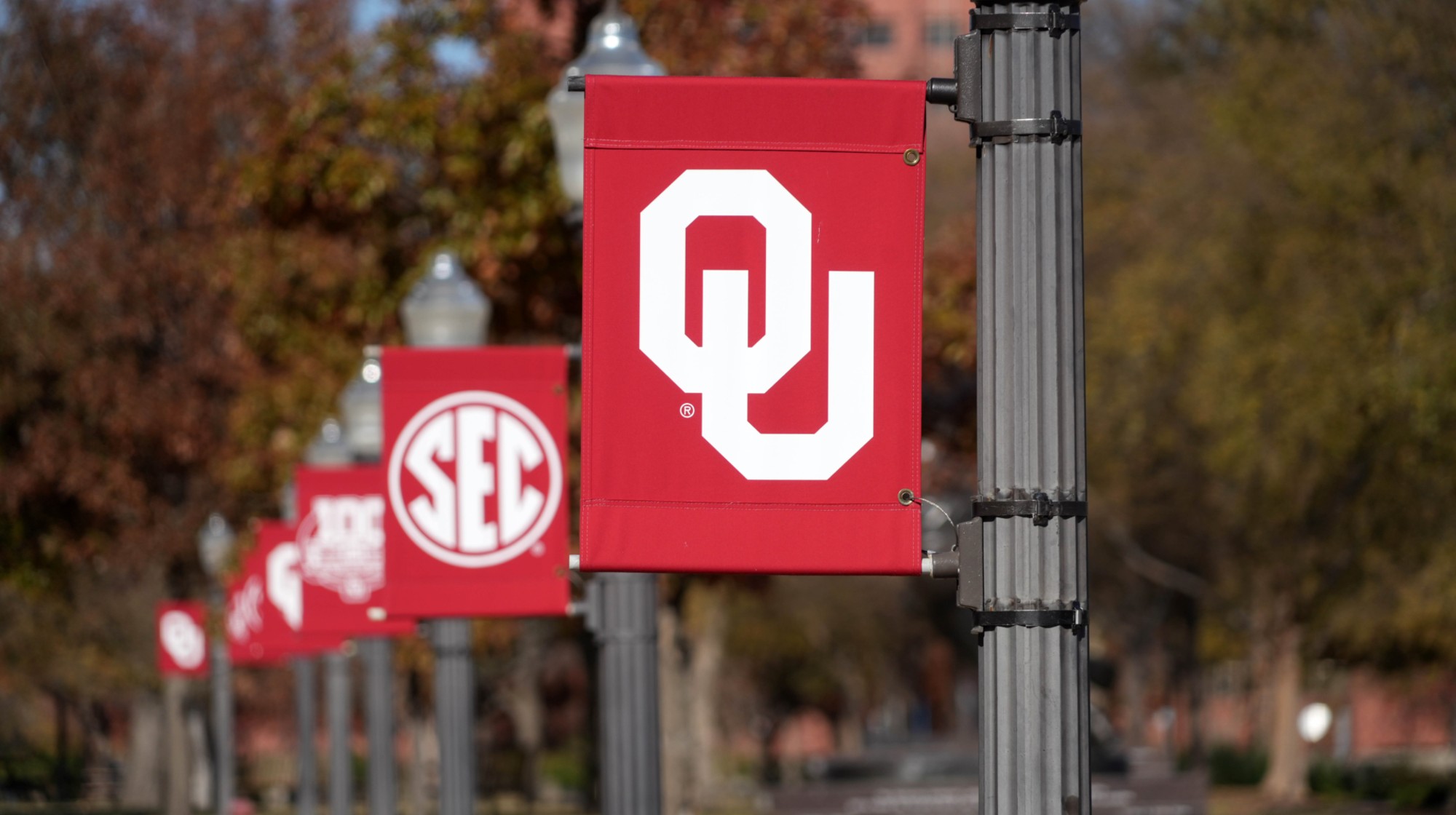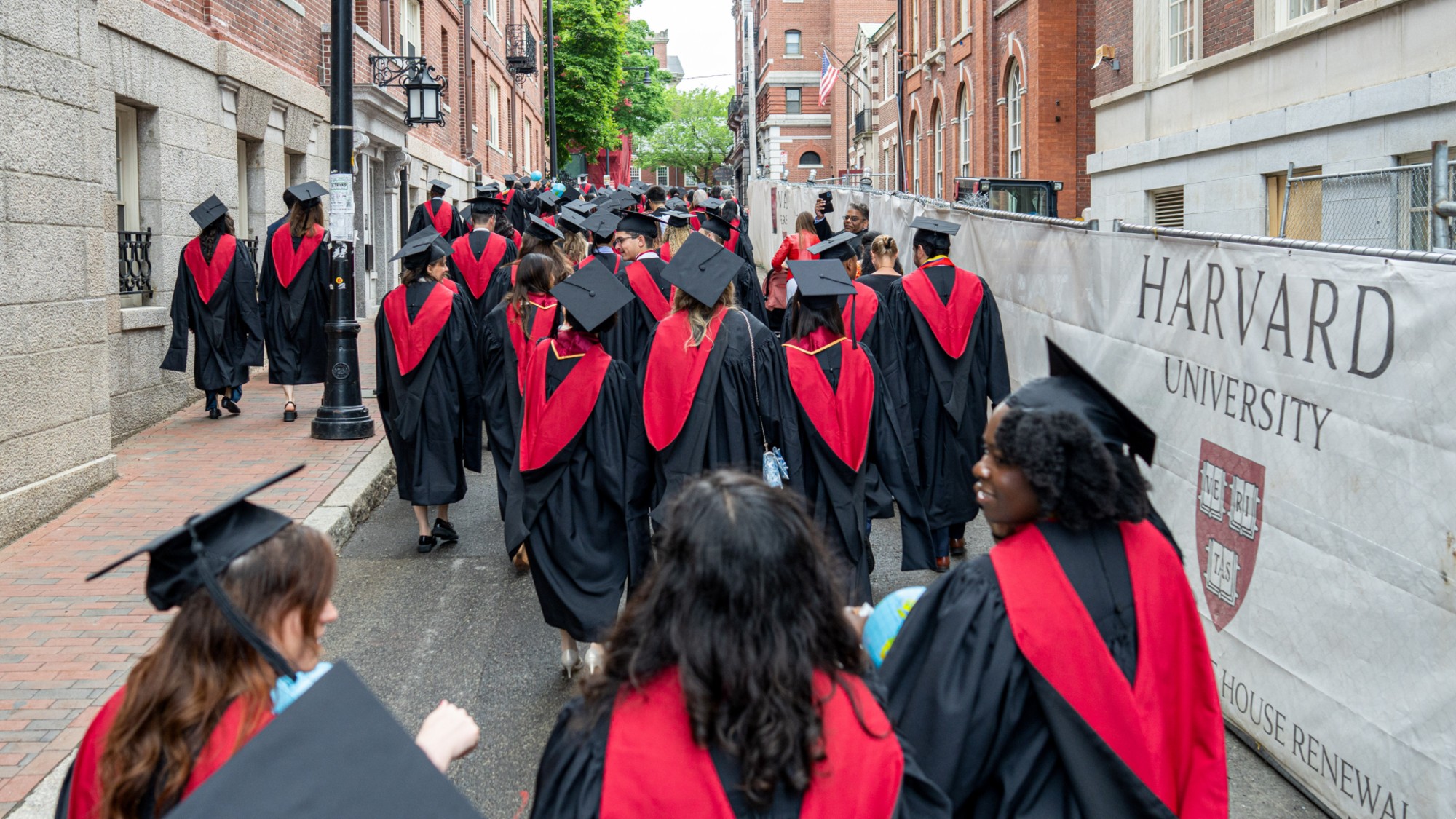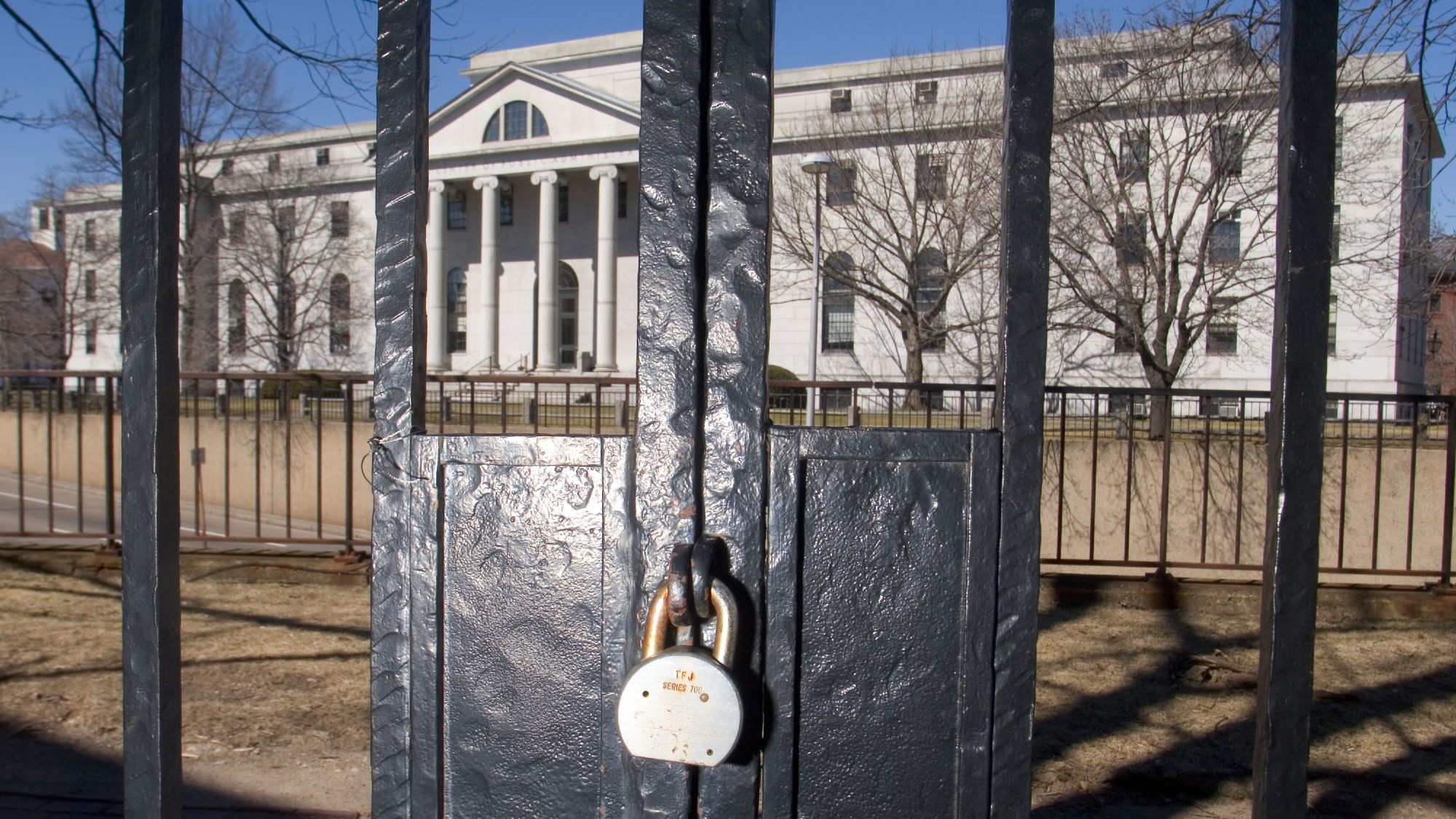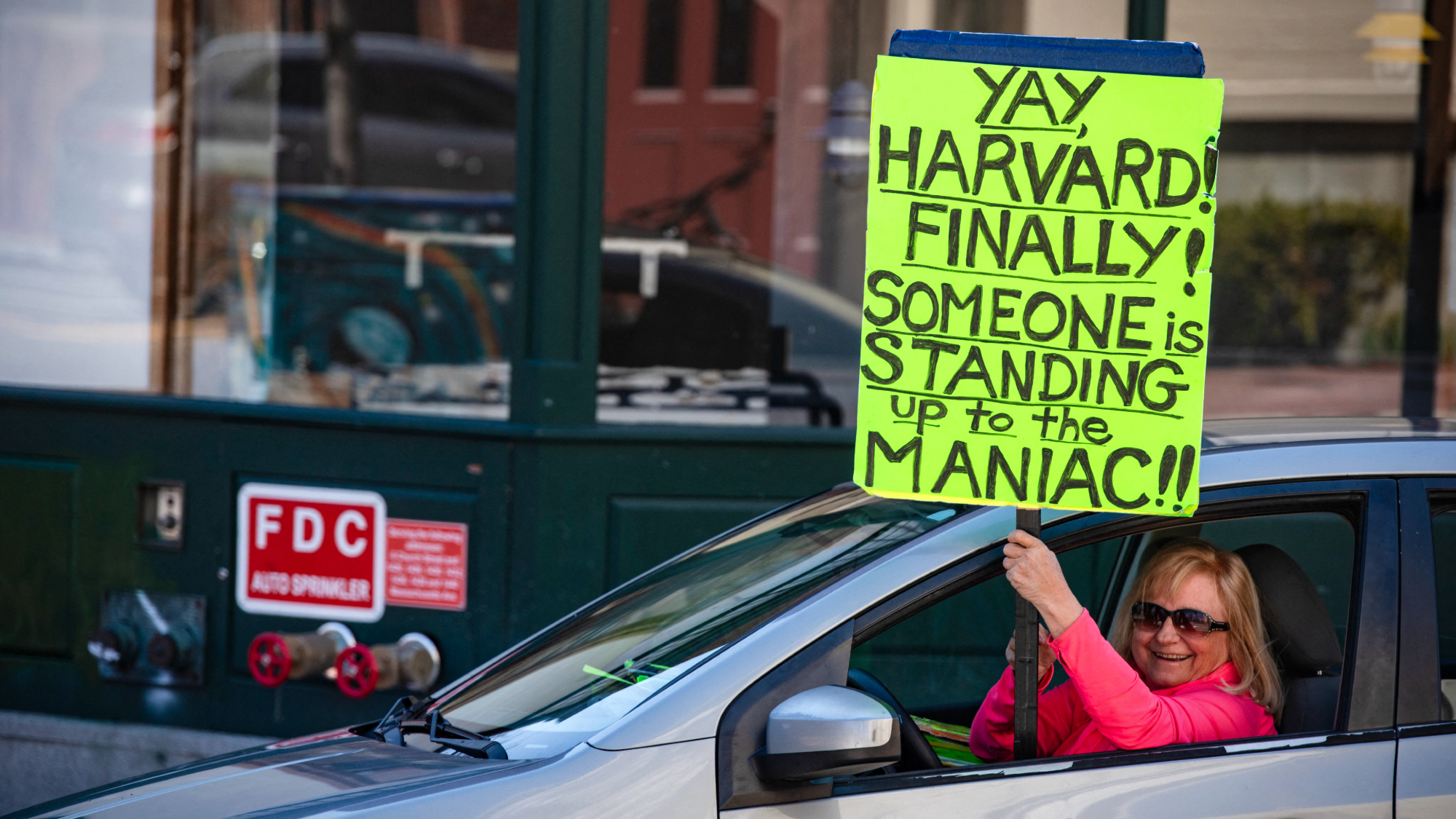The UK students taking on universities over Covid disruption
Claimants say they received poor service and felt like ‘lowest form of life in food chain’

A free daily email with the biggest news stories of the day – and the best features from TheWeek.com
You are now subscribed
Your newsletter sign-up was successful
Around 5,000 current and former University College London (UCL) students are seeking compensation, claiming their tuition contracts were breached after teaching went online during Covid with restricted access to facilities.
Lawyers acting for students have sent “letters before claim” to 17 other institutions including Bristol, Nottingham and Liverpool universities. More than 120,000 former and current students have signed up to the legal action.
If successful, the claims could result in a “combined payout” for the UK higher education sector “running into hundreds of millions of pounds”, said the Financial Times (FT).
The Week
Escape your echo chamber. Get the facts behind the news, plus analysis from multiple perspectives.

Sign up for The Week's Free Newsletters
From our morning news briefing to a weekly Good News Newsletter, get the best of The Week delivered directly to your inbox.
From our morning news briefing to a weekly Good News Newsletter, get the best of The Week delivered directly to your inbox.
What is the claim?
When Covid restrictions began in the UK lectures moved online, and it took more than a year for universities to return to predominantly in-person teaching. The “crux” of the students’ case is that the universities are in breach of contract because the service they received was “inferior to that which they paid for”, said the FT, comparing it to a holiday company that provides a “lesser experience than advertised”.
The pandemic was “unprecedented”, conceded Dazed, “but when it comes down to it, students have just not got what they paid for. It’s not rocket science: people whose package holidays were cancelled got their money back when the pandemic hit, so why not students?”
Students have also claimed that UCL benefited from “bumper” financial years during the pandemic. Its income from tuition fees increased by 41% between 2018 and 2021 and its surplus more than doubled, rising from £53.5 million in 2019-20 to £128.3 million in 2020-21, the FT said.
Who are the students?
Shannon Barnes, who is graduating from UCL having done two years of her physiology degree entirely online, told Sky News that her university time was “meant to be the three most memorable years of my life and I feel like it’s been tarnished by so many things”.
A free daily email with the biggest news stories of the day – and the best features from TheWeek.com
In an eye-catching protest, Milly White “unfurled her graduation gown” on stage at a Liverpool University ceremony to reveal an “I want a refund” sign, said the FT.
The criminology graduate, who complained that much of her three-year degree consisted of pre-recorded videos despite paying annual fees of £9,250, said tuition fees are “crippling as it is” but “when it’s not even worth it – when you’re given such a poor service – it just makes it so much worse”.
“Students are treated as the lowest form of life in the university food chain and no one cares,” Tia O’Donnell, who studied fine art at Central Saint Martins and spent two out of the three years in online classes, told Dazed.
How likely are they to succeed?
Students “could face an uphill battle to win”, said the FT, noting that legal experts have warned that students could struggle to quantify the size of any loss. “To think of it as a price in the way you would a car or a holiday is quite difficult,” said Smita Jamdar, head of education at law firm Shakespeare Martineau.
Ane Vernon, head of education at Payne Hicks Beach, told the FT that these sorts of cases were not easy to bring. “Understandably students are aggrieved by their university years being affected by Covid and industrial action, but the challenge will be to prove liability for loss,” she said.
UCL has argued that its contracts with the students specified the university would not be liable for losses arising from “government restrictions and concern with regard to the transmission of serious illness”.
What happens next?
Students in the “closely watched” UCL test case have claimed a “partial early win”, said the FT. The judge, Barbara Fontaine, senior master of the King’s Bench Division, said the students need not follow UCL’s complaints procedure.
Instead she encouraged both parties “in the strongest possible terms” to reach a settlement and ordered an eight-month pause in proceedings. The “eventual outcome” is “likely to set a precedent for many other universities in the country”, said Sky News.
The consequences could be more than legal, as the cases could create a “reputational risk” for universities, said the FT. “The sight of dismayed students taking to the courts is damaging for a sector that has already been hurt not just by the pandemic, but also years of industrial action,” it said.
Chas Newkey-Burden has been part of The Week Digital team for more than a decade and a journalist for 25 years, starting out on the irreverent football weekly 90 Minutes, before moving to lifestyle magazines Loaded and Attitude. He was a columnist for The Big Issue and landed a world exclusive with David Beckham that became the weekly magazine’s bestselling issue. He now writes regularly for The Guardian, The Telegraph, The Independent, Metro, FourFourTwo and the i new site. He is also the author of a number of non-fiction books.
-
 Local elections 2026: where are they and who is expected to win?
Local elections 2026: where are they and who is expected to win?The Explainer Labour is braced for heavy losses and U-turn on postponing some council elections hasn’t helped the party’s prospects
-
 6 of the world’s most accessible destinations
6 of the world’s most accessible destinationsThe Week Recommends Experience all of Berlin, Singapore and Sydney
-
 How the FCC’s ‘equal time’ rule works
How the FCC’s ‘equal time’ rule worksIn the Spotlight The law is at the heart of the Colbert-CBS conflict
-
 American universities are losing ground to their foreign counterparts
American universities are losing ground to their foreign counterpartsThe Explainer While Harvard is still near the top, other colleges have slipped
-
 Oklahoma fires instructor over gender essay grade
Oklahoma fires instructor over gender essay gradeSpeed Read
-
 Education: More Americans say college isn’t worth it
Education: More Americans say college isn’t worth itfeature College is costly and job prospects are vanishing
-
 Penn wipes trans swimmer records in deal with Trump
Penn wipes trans swimmer records in deal with Trumpspeed read The University of Pennsylvania will bar transgender students from its women's sports teams and retroactively strip a trans female swimmer of her titles
-
 Where will international students go if not the US?
Where will international students go if not the US?Talking Points China, Canada and the UK are ready to educate the world
-
 Colleges are canceling affinity graduations amid DEI attacks but students are pressing on
Colleges are canceling affinity graduations amid DEI attacks but students are pressing onIn the Spotlight The commencement at Harvard University was in the news, but other colleges are also taking action
-
 Can Trump ban overseas students from US universities?
Can Trump ban overseas students from US universities?Today's Big Question President's decision to revoke Harvard's access to database for admitting international students 'drastically escalates' the dispute
-
 Harvard sues Trump over frozen grant money
Harvard sues Trump over frozen grant moneySpeed Read The Trump administration withheld $2.2 billion in federal grants and contracts after Harvard rejected its demands